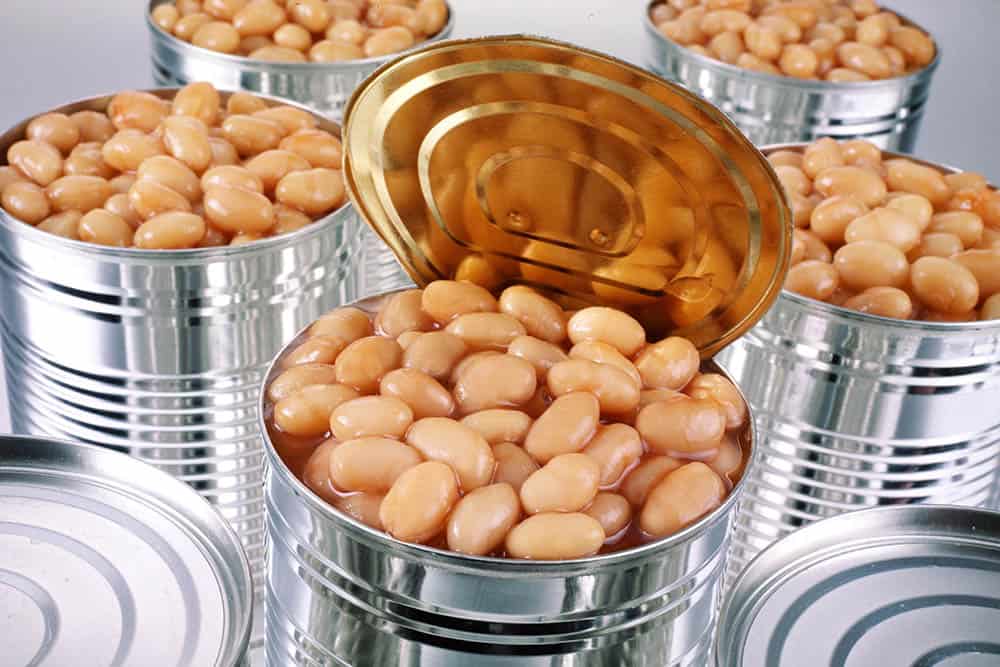Have you ever considered freezing your blueberries at home, especially when you buy more than you can consume in a week? Or have you ever wondered if you can freeze blueberries?
I have come across this question – can blueberries be frozen many times in forums, social media platforms, and from friends and relatives.
So I decided to step up and answer this million-dollar question from my experience.
Besides answering the question, “can blueberries be frozen,” I’ll be answering other related questions and providing lots of insights on this topic.
So if you want to know more about berries and how to store them, rest assured, you will find this post helpful. But before that, let’s get to the nitty-gritty:
This post may contain affiliate links. Read my disclosure policy here.
Can Blueberries be Frozen?
Yes, you can freeze your blueberries and remove only the portion you need. You can choose to wash your berries before you can freeze them.
But in case you didn’t wash them (which isn’t recommended), rinse before eating your frozen blueberries. If you want even better results, consider tossing your frozen berries in yogurt, sauces, smoothies, shakes, or oatmeal.
How to Freeze Blueberries
Before showing you how to freeze your blueberries step-by-step, let’s go through some essential tips you need to know before freezing your blueberries.
- Use Fresh, Ripe Blueberries
Fresher blueberries will be tastier when you freeze them, so how can you check the quality of your berries? Take a closer look at the berries, and then pop some into your mouth. Ripe blueberries are blue, have a tangy-sweet flavor, and juicy.
However, if you notice that your berries have a mushy feeling or are wrinkly, these are not the best berries you want to freeze. However, this doesn’t mean you should throw them away. Cook your overripe blueberries into sauce and drizzle over pancakes.
- Don’t Wash Your Blueberries
Many guides recommend that you wash fruits and vegetables before you can freeze them. Sure, this makes quite a lot of sense because they have passed through different people before reaching you.
While this is not a bad practice, washing your fruits before you freeze them can use the fruits to stick together once you freeze them. This will force you to use parchment papers or salad spinners to work out this issue.
Blueberries have a protective coating called bloom. This coating is waxy and protects your berries against bacteria and pests, though naturally nonstick. Washing your blueberries, therefore, means that you’ll be washing away the bloom.
Don’t wash your berries because you will not just be removing the coating, but you will also be increasing the chances of your blueberries spoiling faster than expected.
That is why I recommend that you just freeze your berries without washing them and only rinse when you want to use them.
One final thing: ensure that your freezer is at 0°F or even colder. This will help your blueberries retain their flavor, texture, color, and nutrients.
Now that you know the type of berries you need to use and that you MUST never wash your berries before freezing, let’s look at how you can freeze your blueberries step-by-step.

Step 1: Choose Your Berries
For many people, this is as easy as selecting a few no-mushy blueberries at the market. However, it would be best to visit “a pick your own” farm and choose the best berries.
These places are good because you can find blueberries at an affordable price, and you can also be sure that you are buying ripe blueberries.
Below is how you can pick blueberries in these places:
- Call the firm directly or visit their blog to confirm if they have blueberries
- Ensure you visit the farm early in the morning, especially during summer
- Carry some containers along with you if the farm you are visiting doesn’t provide any
- Dress comfortably because some blueberries will require reaching.
Once you are at the farm, pick as many blueberries as you can. However, ensure that the quantity you are choosing will be enough for your freezer and not more than enough.
Step 2: Rinse and Arrange
If the berries are very dirty, be sure to rinse, though be careful not to remove the bloom. Pat dry your berries and arrange them in one layer on a baking sheet.
Ensure that this baking sheet will fit flat in the freezer. Since you rinsed your berries, they might stick on the tray bottom, so place a dishtowel at the bottom to prevent your berries from sticking.
Step 3: Place in Freezer
It’s now time to place your baking sheet in the freezer, but you must ensure that it is lying flat to prevent sticking and rolling over each other.
In other words, you need to ensure that the berries don’t touch each other.
If you picked many berries at the firm, stack additional trays, but make sure that you leave some space for cold air to move in between (you can use a knife to create this space.)
Wait for about four hours for the blueberries to freeze, then move to the next step:
Step 4: Fill Containers
Find some containers where you will keep the frozen blueberries. Most blueberry lovers prefer plastic containers or freezer bags – it’s your prerequisite.
In case you go with plastic containers, use a straw to remove any excess air before you seal to minimize the chances of freezer burn.
If you choose glass containers, please don’t thaw the contents by placing them in boiling water because glass cannot withstand this and can break.
In case you still have more berries you want to freeze, balance the trays on top of your containers.
Step 5: Consume Your Berries
Blueberries can thaw fast, so most recipes recommend that you don’t thaw them before using them. If any blueberries stick together, shake the container, and they will come apart. You can use them, but make sure that you rinse if you did not wash before freezing.
Related Questions
1. Do Frozen Blueberries Get Mushy?
No, frozen blueberries don’t get mushy and can last for a couple of months. Instead of mushing, blueberries freeze quickly and beautifully. The best of all is that you don’t require ice for frozen berries and don’t even need to defrost them for smoothies.

2. How Long Do Blueberries Last?
Fresh berries can stay in the refrigerator for up to ten days. Depending on where you live, you will get blueberries at different times of the year. I recommend purchasing local blueberries rather than imported ones.
And because there are times when blueberries are out of season, you need to freeze them so that you can have something to rely on later. The advantage of freezing berries is that they can last longer – between 10 to 12 months.
Freezing berries doesn’t have to be a daunting task. If you are not familiar with freezing berries, please check out how to freeze berries just before this section of this post.
3. Does Freezing Blueberries Destroy Its Antioxidants?
Yes, freezing blueberries can destroy their antioxidants properties. Besides antioxidant properties, blueberries also have vision improvement properties, cardiovascular protection properties, mutagenesis, antidiabetic properties, and carcinogens’ inhibition.
4. How Do You Thaw Frozen Blueberries?
To thaw frozen blueberries, follow the instructions below:
- Put your blueberries (1 cup at a time) in one layer while making sure there’s some space between your blueberries
- Place the blueberries in the microwave with a defrost setting of 30 seconds. You need to check your berries until all are de-frozen
- Once your berries have de-frozen, remove them from your microwave. It is essential to note that your berries will retain their distinctive shape once they are frozen
- The last step is to lift your blueberries from the paper towel and use them as you desire.
Thawed frozen blueberries are usually more delicate than fresh berries, and this is why they will rapidly fall apart when you toss them in a fruit salad. So keep your berries appropriately if you want them to maintain their shape.
5. How Do You Keep Blueberries Fresh Longer?
To keep your blueberries fresh and for longer, give your berries a quick vinegar bath and water solution once you get home from the farm. Dry your berries and put them in a clean container lined with paper towels.
You are using vinegar because you want to prevent mold from growing, which could make them spoil. This method is effective and can help keep your blueberries up to 10 days. Here is a step-by-step guide on how you can keep your berries fresh and longer:
- Put 3 cups of water in a bowl and mix it with 0.25 cups of vinegar. If you will be rinsing your berries, use organic distilled vinegar because it’s way more affordable than the others. Alternatively, you can use apple cider vinegar for the same purpose. Now put your blueberries into the water and allow for about 10 minutes. While you do this, stir your berries.
- Once that is done, rinse in a colander using clean running water.
- It’s now time to put your berries in a salad spinner and ensure that this salad spinner is lined with paper towels. You need to spin until you can see that your berries have dried. Another way to do this is by putting your berries on a clean dish towel. Blot to remove excess water.
- You now need to store your blueberries in a sealable container lined with a paper towel. Keep the container lid open so that excess moisture can escape. You can store them in the refrigerator or freezer to stay longer.
Final Thoughts
Blueberries are sweet and delicious. They are low in calories and good for you. Hopefully, I have answered your question, “can blueberries be frozen,” in the best possible way I could.
It’s now your turn; please let me know your experience with blueberries and how you have been storing them all along before confirming that you can freeze them.
Likewise, feel free to leave a comment with any disturbing questions, and I’ll do my best to respond to you.







